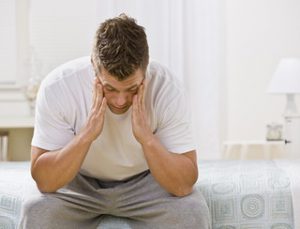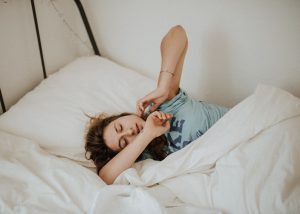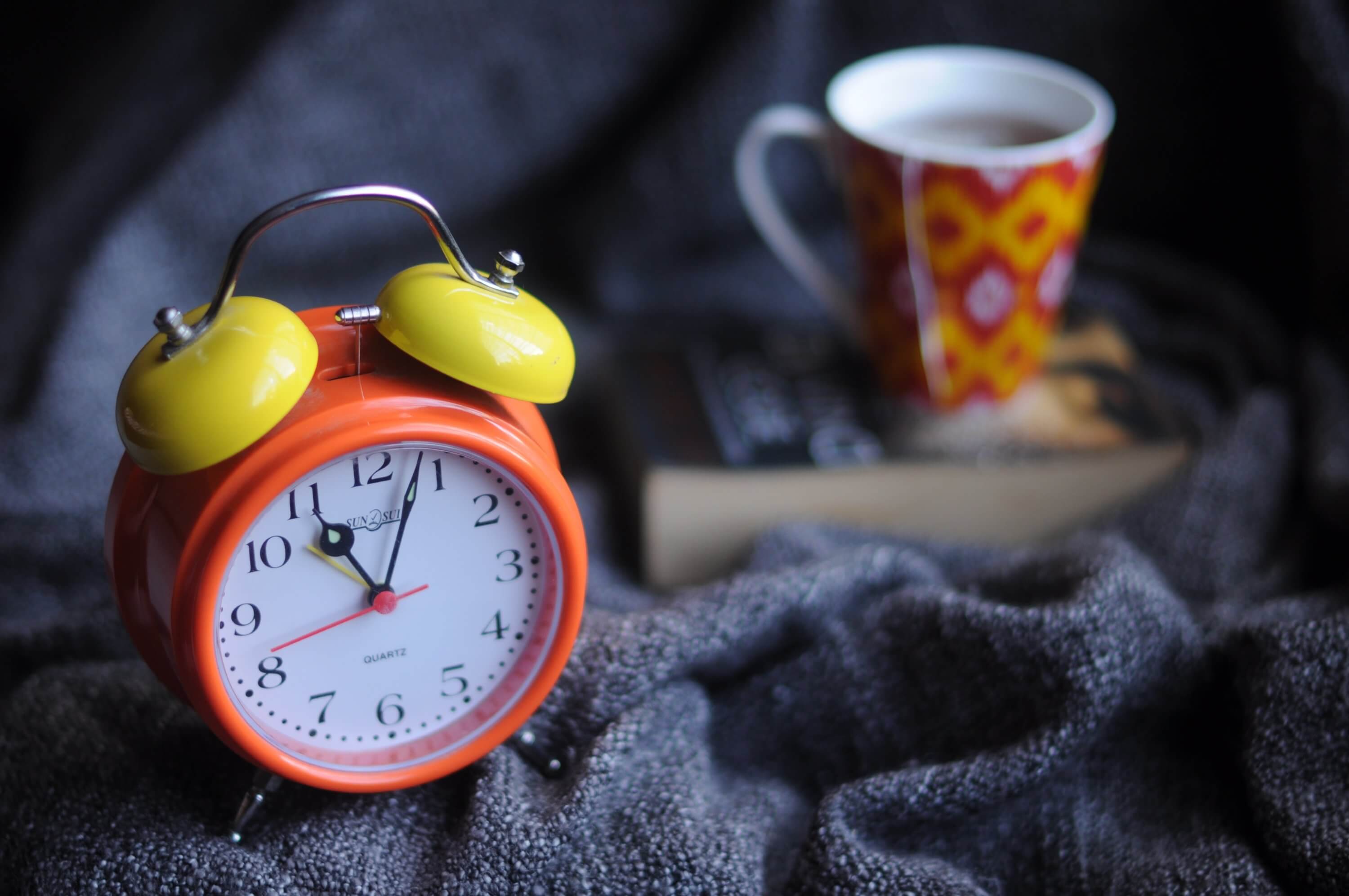The value of sleep is often underrated. While many of us suspect we don’t get enough sleep (and have good intentions to try to get more) there’s always that one more thing to do, or look at, before going to bed. However, an abundance of research shows that improving the quality and quantity of sleep is one of the most effective ways to transform our health.
Environmental drivers
If we take a look at our environment, it is no wonder we tend not to prioritise sleep first.
We have such fast-paced lifestyles with demands on us each day from our work, family and social lives. We are often trying to fit so much into our day that dedicating enough time for sleep can be a challenge.
When we are time poor, our priorities can become skewed with our health & wellbeing dropping down our to-do list. We tend to choose the fastest and easiest food options (which unfortunately tend to be the unhealthy choices!), we skip the gym and we sacrifice our sleep! So struggling with fatigue on a daily basis almost becomes the norm, and I am sure you are well aware of what fatigue feels like.

Are you experiencing effects of fatigue right now? Fatigue takes a great toll on both our body and mind, leaving our cognitive and physical performance impaired. We go into a power saving mode and so struggle to focus, make strong decisions, multi-task. Our memory is lacking, our minds become fuzzy and we tend to make more mistakes as a result.
Signs of fatigue can also be quite obvious to those around us too! We can become over emotional, irritable and moody and not be too pleasant to work with or be around!
Not getting enough sleep or poor quality sleep can affect
- Your weight
- Your energy levels
- Your ability to think
- Risk of accidents
- Risk of lifestyle diseases
When you are sleep deprived, your judgment, reaction time and other functions are impaired. Although you may be able to artificially override your fatigue for small periods of time by the use of stimulants (e.g. caffeine) ultimately the only cure for tiredness and fatigue, is sleep.
So how much sleep do you need?
Most adults need seven to eight hours of sleep every 24 hours; this can vary depending on the person. As we age we need less sleep; however we do need a minimum of five hours in any one 24 hour period and most adults function best with at least seven hours.
If you have been sleep deprived in previous days, the amount of sleep you need increases. You know you’ve have had sufficient sleep when you wake up ‘on your own’ (i.e. with no alarm) and you feel fresh and alert for the next day – can you remember that feeling?!
The research is clear; those who sleep between seven-eight hours most nights live longer!

What can you do?
Sleep Hygiene is the term used to describe good sleeping habits. On average, the time taken to get to sleep is 22 minutes. With good sleep hygiene and training this can be halved to 11 minutes. Here is another article that gives you 10 great tips on how you can improve your sleep.
How about napping?
Short and sweet is best!
According to sleep experts, your nap needs to be kept short at around 20-30 minutes, which is perfect for those of us at work that may be able to fit it into a lunch hour. The reason for the short burst is to do with your sleep cycle – called your Circadian Rhythms.
Typically, we go in and out of lighter, then heavier sleep. A 20-30 minute power nap will conclude before you slip into a deeper sleep. If you wake during a deeper sleep cycle – that can make you feel worse. Or, if you want (and can manage) a longer nap – aim for 90 minutes. A full sleep cycle (all stages) takes approx. 90 minutes. So a sleep for this long will have all the benefits of revitalisation your body needs.
Napping at Work
Wondering where to take a power nap at work? Suggestions include:
- Your office (if you have one)
- A conference, lunch or break room
- A nearby library
- Or a parked car (lock the doors)
Caffeine naps
A caffeine nap is a short nap that is preceded by the intake of caffeine. A series of studies investigated the effectiveness of common techniques used to help people stay alert whilst driving (cold air, radio, a break with no nap, a nap, caffeine pill vs. placebo and a short nap preceded by caffeine) on mildly sleep-deprived people.
A short nap preceded by caffeine was by far the most effective in reducing driving ‘incidents’ and subjective sleepiness. Caffeine (in coffee) takes up to a half-hour to have an alerting effect, hence ‘a short (<20min) nap’ will not be compromised if it is taken immediately after the coffee.
For more information about our Sleep Seminars and Workshops call us on
Australia : 1300 647 000
New Zealand : 0800 222 949
Or click below to send us an enquiry
Contact Us

